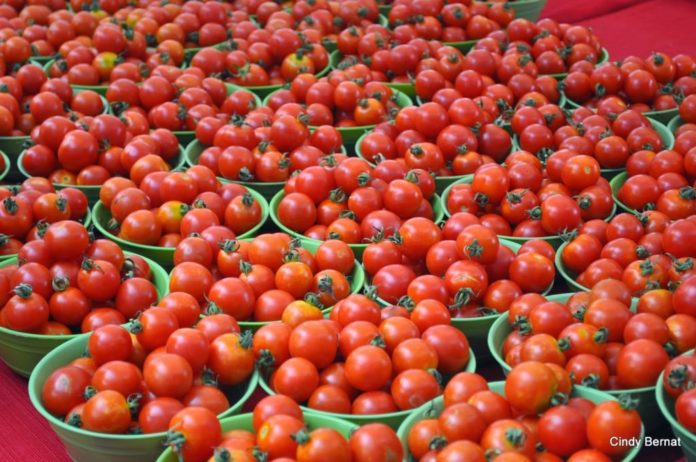
Processed tomatoes, popularly known as tomato paste or tomato puree, serve as an alternative method of preserving tomato. This guarantees the availability of tomato products for consumption all year round.
Nigeria is said to be one of the largest consumers of vegetable in Sub-Saharan Africa with about 22kg per capita, and it is the second-largest producer of fresh tomatoes in the whole of Africa.
This growth has been achieved through continuous increase in the harvested area for tomatoes from about 265,000 hectares to 668,292 hectares.
Tomato yields in Nigeria in recent years, have become very low at an average of 5.47 tonne compared to the world average yield of 38.1 tonne, due to the use of old seedling varieties, low soil fertility, and pest and weed invasion.
Also, the post-harvest losses which can be solely attributed to poor supply chain management such as, lack of adequate storage facilities and poor transportation systems have contributed to the low yields and have further increased tomato wastage.
The effect of tomato wastage in the country includes: High importation of tomato paste, low Income of farmers and folding up of tomato processor facilities due to the reduction in tomaoto supply.
However, placing a ban on importation of tomato paste, establishment of tomato water dump tank, improved access to cold facilities, and usage of plastic crates among others are measures to be put in place and adopted in order to reduce wastage. All these in turn will promote the production of locally made tomato paste commodity.
Abdulkarim Kaita, Managing Director of Dangote Tomato Processing Company has called on the Nigerian government to put a ban on the importation of tomato paste into the country.
He made the request during the inauguration of tomato seedlings distribution to 5,000 farmers under the Central Bank of Nigeria (CBN) Anchor Borrowers Programme at Kadawa, Kura Local Government Area of Kano State.
He said, ‘We are appealing to the Federal Government to put a total ban on the importation of tomato like what it did to rice.’
He emphasised that the ban of tomato importation, would not only improve local production of the commodity but will also guarantee its self-sufficiency, as it will encourage the development of more tomato processing plants in the country, and will create more job opportunities.
Mr Kaita, revealed that Tomato paste importation already has a strong imprint in the Nigerian market, considering that such imports from Cameroun and Cotonou, Benin Republic are available in large scale in Nigeria.
He further disclosed that Dangote Tomato Processing Company had held meetings with the Controller General at the Customs Headquarters over the issue of importation, but no step had been taken to put a stop to the practice.
He said, ‘It is only by putting a total ban on tomato importation that the government can encourage farmers to grow the commodity for the country to be self-sufficient.’
Read Also: Banks to Give N2bn Agric Loans at 5% Annual Interest-CBN
In relation to this, the company has formed alliance with the CBN, in order to provide farmers with high yield seeds that are hoped to produce at least 40 tons per hectare in returns.
He added by saying that, ‘There are 12 major tomato producing states in the country which if fully cultivated, in the next one year Nigeria will be able to start exporting tomato.’
The United Nations Environmental Programme (UNEP), confirmed that, Nigeria spends about $1 billion yearly to import tomato paste, while 75 per cent of locally produced tomatoes are wasted due to inadequate storage.

